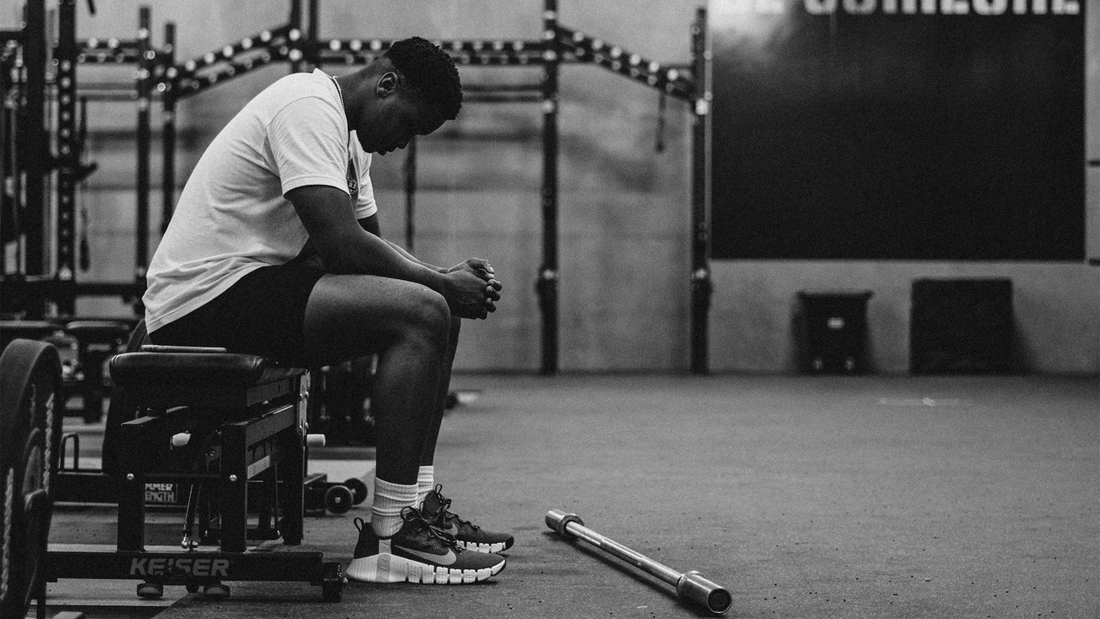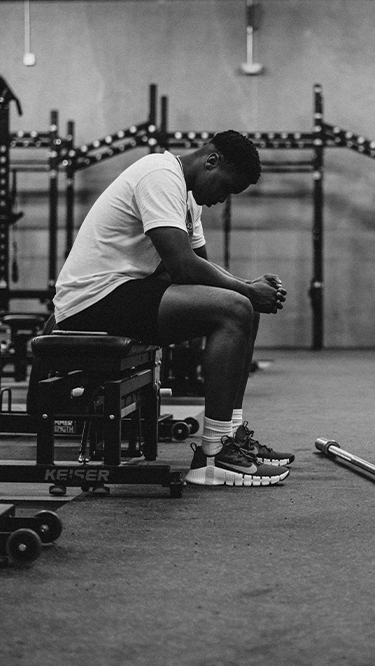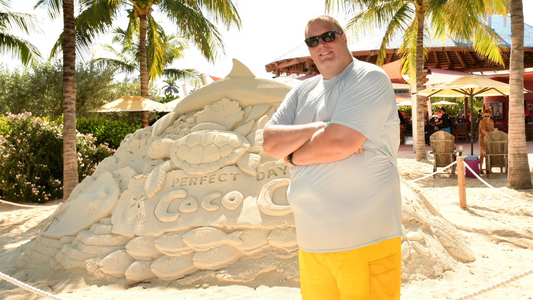

How Long Does Temporary Weight Gain After Exercise Last?
You've been working on yourself and getting in shape. The workouts are feeling good and you're starting to get that bounce back in your step, but then you notice you're gaining weight. Why would you gain weight after getting into a workout routine? How long does temporary weight gain after exercise last? These concerns are valid, and we're here to tell you there is light at the end of the tunnel.
How Long Does Temporary Weight Gain After Exercise Last? 3 Reasons It Might Be Happening
To understand how long your weight gain is going to last, you need to understand why it's happening in the first place. There are three possibilities.
1. Water Retention
Especially in the first days and weeks of a new workout routine, your body is going to retain water. In most cases, it goes down within a few days. Some reasons your body retains water are:
- Inflammation - As you stress the body and break down the muscle, your body holds onto water to help with the repairs.
- Dehydration - Whether you're not drinking enough water to begin with or you're sweating more than you thought you would, your body will retain as much water as possible to keep you hydrated.
- Carbohydrates - Carbs are needed for glycogen conversion. Glycogen binds with water to feed your muscles, and when you increase carbohydrates, your body thinks it needs to retain more water, too.
2. Losing Fat but Building Muscles
Your body might be doing what you want it to do without you realizing it because you're too focused on the scale. Pay more attention to muscle gained. As you exercise and lose fat, your muscles will noticeably build after a month or two. Muscle mass is greater than fat mass, so it's going to weigh more.
In many cases, this weight gain is temporary because the individual has so much fat to lose. There may be waves of weight gain, weight loss, and stability. Keep at it. As long as you're building muscle and dropping the fat, you're doing it right.
3. Poor Habits
Your new habit of working out regularly is great, but what about your other habits? There are a couple of common mistakes you might make that contribute to weight gain after starting a workout routine:
- You treat yourself to junk food as a reward for a good workout. Your eating habits need to match the healthy lifestyle you're trying to create. Skip the junk food and instead treat yourself to a new book, new running shoes, or a vacation.
- You forget to stay active the rest of the day. Your workout might be the only intense movement of your day, but you can't sit around the rest of the time and expect the weight to stay off. Take the stairs instead of the elevator, walk to a friend's house, wash your windows, and do things that keep your body moving without the intensity of a workout.
How long does temporary weight gain after exercise last when paired with bad habits? As long as the bad habits. Cut those out of your life and you'll likely notice the pounds start to decrease again.
Is It Normal to Gain Weight After Exercise?
It is normal for most people to gain weight after they start an exercise routine. Our bodies are always changing and adapting to the environment that we put them in, and a new workout routine is no different. If you experience weight gain for a few days after exercise, there is no need to worry. There are a couple of reasons you might consult a health professional for help or information after weight gain:
- It stays on for a week or longer
- The weight increases over several weeks
- The increase is accompanied by pain
- The weight is visually obvious and localized in one area of the body
How Can I Avoid or Minimize Weight Gain After Exercise?
Sometimes there is nothing you can do because your body is going to react to your new exercise routine. If you want to try minimizing or avoiding weight gain after exercise, you might try one or more of the following.
Drinking More Water
Do not limit your water intake to during your workout. Staying hydrated is a process that begins the moment you wake up and isn't finished until you take that last drink before you go to bed at night.
It is recommended that men drink 15.5 cups of water per day and women drink 11.5 cups per day, but that doesn't consider exercise. During your workout, you should additionally drink at least one cup of water every ten minutes, plus two cups immediately following the routine.
Doing Interval Training
Short intervals of training with a rest period in between can lessen the stress on your muscles and reduce the amount you sweat. Interval training is a great cardio workout that increases the metabolism and helps you drop the pounds.
Lifting Weights
When you focus on strength, your body's metabolic rate increases. As you acquire lean muscles through weight training the weight gain is offset as your muscle mass increases.
Planning Your Workouts
Whether by yourself or with a trainer, sit down and come up with some goals. If avoiding temporary weight gain is one of those goals, focus on workouts and habits that will help you achieve it. Switching up modalities in your routine can help your body stay balanced and drop the weight.
Resting
While you do need to maintain an active lifestyle, you also need adequate rest. Make sure you're getting an appropriate amount of sleep at night. If your body is telling you to rest, listen and take a break from whatever activity you're involved in at the moment.
How Long Does Temporary Weight Gain After Exercise Last? Let Us Help!
How long does temporary weight gain after exercise last and how can you avoid it? It shouldn't last long and there are a handful of things you can do to keep it under control. At ZOZOFIT, we'll help you track what's going on with the ZOZOFIT app while using the different features available in our digital toolbox, including goal setting, ColorMetric, body fat percentage calculations and more.

![zf-w-[168px] zf-h-[40px]](http://zozofit.com/cdn/shop/t/15/assets/logo-desktop.png?v=117713855448369080381753069598)




